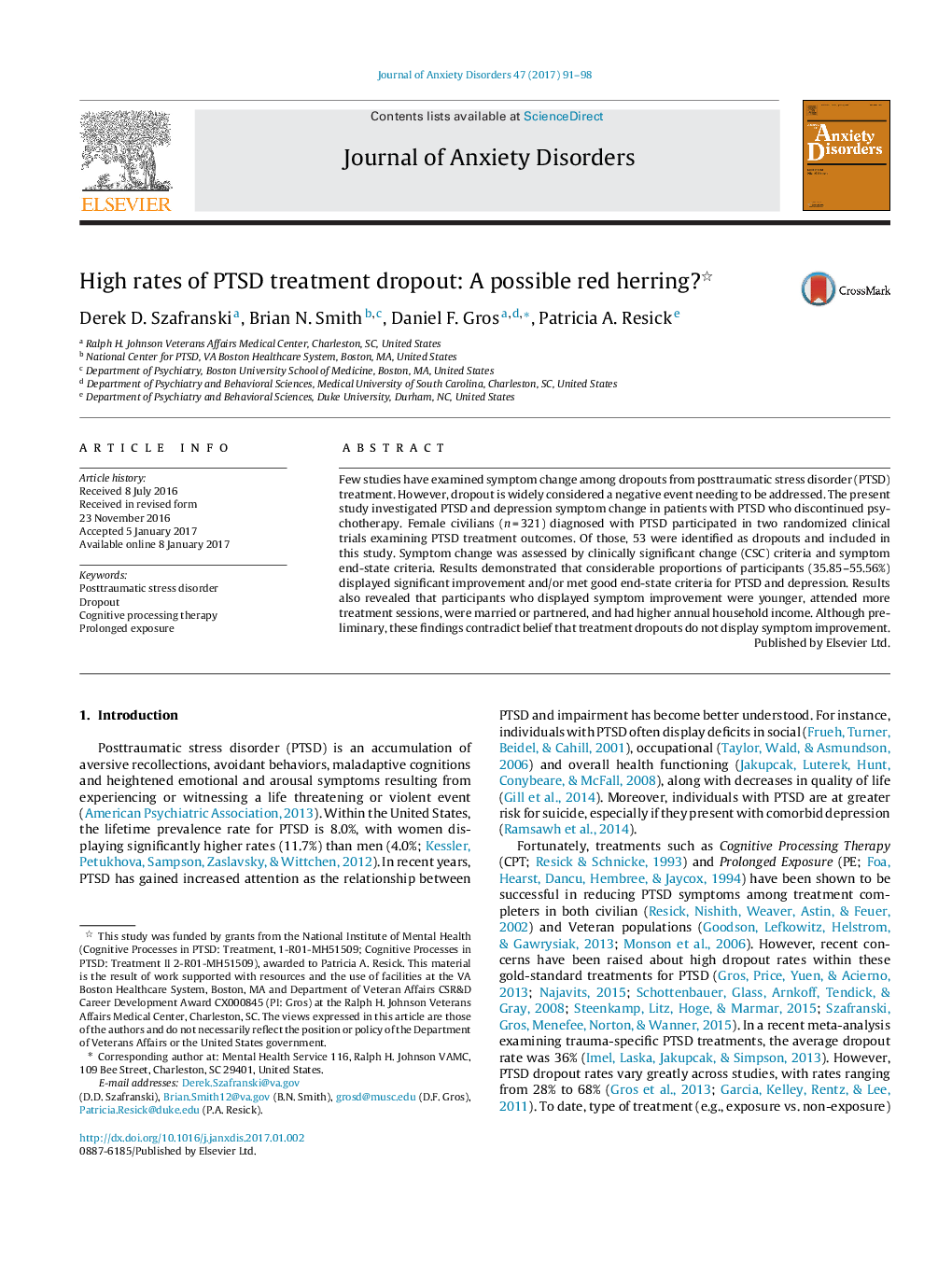| Article ID | Journal | Published Year | Pages | File Type |
|---|---|---|---|---|
| 5038874 | Journal of Anxiety Disorders | 2017 | 8 Pages |
â¢Definitions of PTSD treatment dropout are inconsistent within the current literature.â¢Large proportions of dropouts displayed significant decreases in PTSD symptoms.â¢Large proportions of dropouts displayed significant decreases in depression.â¢Symptom improvement was associated with more sessions attended.â¢Younger participants were more likely to display symptom reduction.
Few studies have examined symptom change among dropouts from posttraumatic stress disorder (PTSD) treatment. However, dropout is widely considered a negative event needing to be addressed. The present study investigated PTSD and depression symptom change in patients with PTSD who discontinued psychotherapy. Female civilians (n = 321) diagnosed with PTSD participated in two randomized clinical trials examining PTSD treatment outcomes. Of those, 53 were identified as dropouts and included in this study. Symptom change was assessed by clinically significant change (CSC) criteria and symptom end-state criteria. Results demonstrated that considerable proportions of participants (35.85-55.56%) displayed significant improvement and/or met good end-state criteria for PTSD and depression. Results also revealed that participants who displayed symptom improvement were younger, attended more treatment sessions, were married or partnered, and had higher annual household income. Although preliminary, these findings contradict belief that treatment dropouts do not display symptom improvement.
